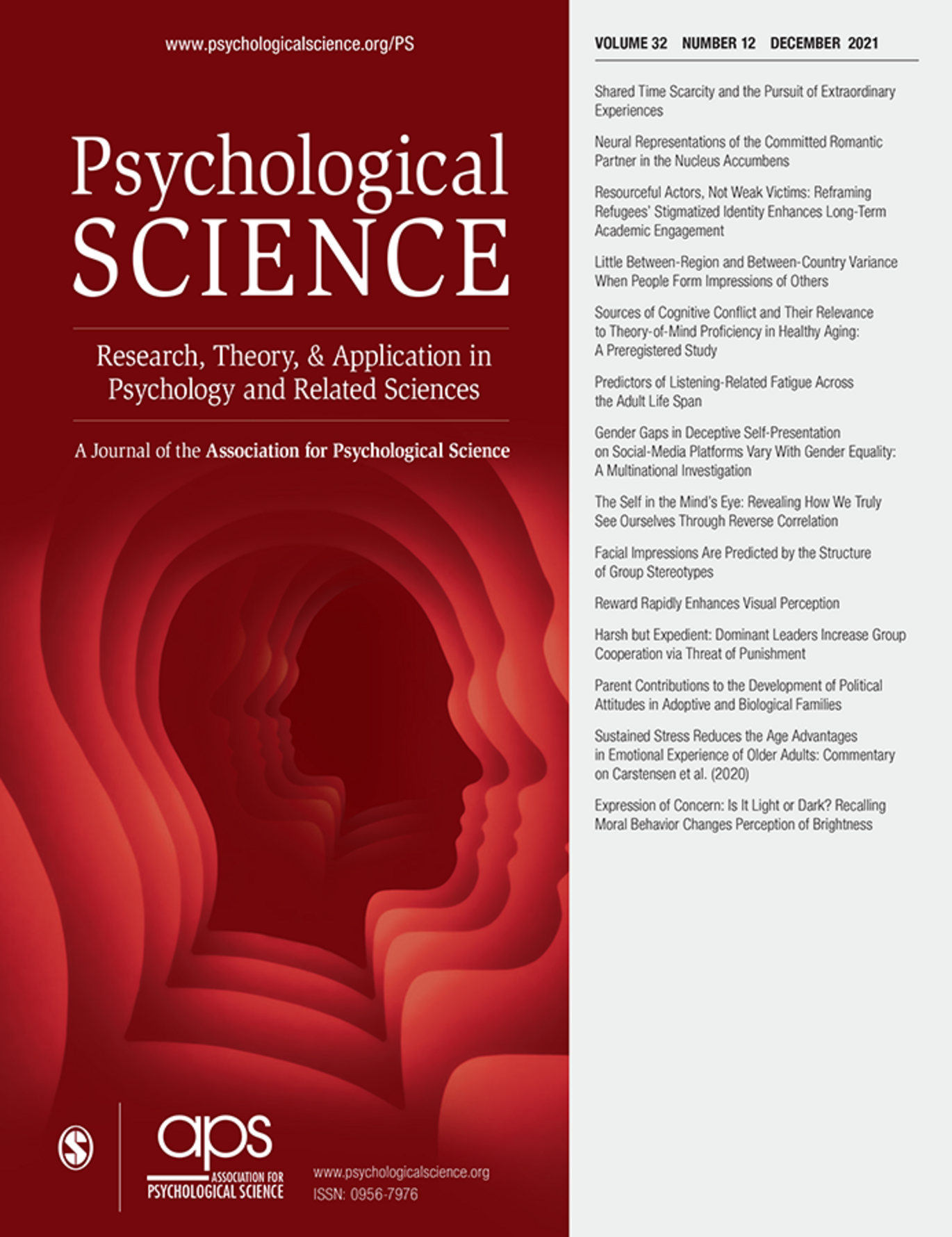Harsh but Expedient: Dominant Leaders Increase Group Cooperation via Threat of Punishment
Ny forskningsartikel fra Lasse Laustsen i Psychological Science. Artiklen er skrevet i samarbejde med Fan Xuan Chen (Department of Psychology, University of Illinois at Urbana-Champaign) Xinyu Zhang (School of Information Sciences, University of Illinois at Urbana-Champaign) og Joey T. Cheng (Department of Psychology, University of Illinois at Urbana-Champaign og Department of Psychology, York University).

https://doi.org/10.1177/09567976211031208
Resume - på engelsk
Dominant leadership is, surprisingly, on the rise globally. Previous studies have found that intergroup conflict increases followers’ support for dominant leaders, but identifying the potential benefits that such leaders can supply is crucial to explaining their rise. We took a behavioral-economics approach in Study 1 (N = 288 adults), finding that cooperation among followers increases under leaders with a dominant reputation. This pattern held regardless of whether dominant leaders were assigned to groups, elected through a bidding process, or leading under intergroup competition. Moreover, Studies 2a to 2e (N = 1,022 adults) show that impressions of leader dominance evoked by personality profiles, authoritarian attitudes, or physical formidability similarly increase follower cooperation. We found a weaker but nonsignificant trend when dominance was cued by facial masculinity and no evidence when dominance was cued by aggressive disposition in a decision game. These findings highlight the unexpected benefits that dominant leaders can bestow on group cooperation through threat of punishment.
